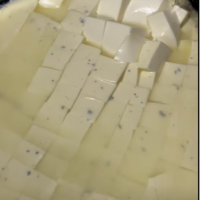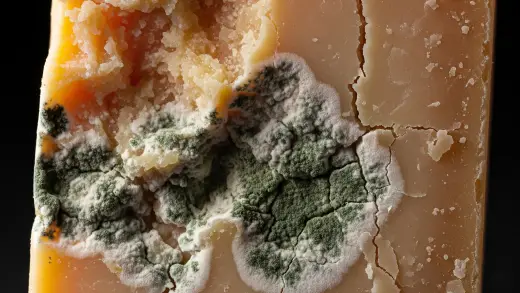Unopened Boursin cheese can last for about 2 to 4 weeks past its “best before” date if stored properly in the refrigerator. Keep it at a consistent temperature of around 40°F (4°C) or lower to maintain its quality.
Introduction to Boursin Cheese
If you’re a cheese lover, you’ve probably heard of Boursin cheese. This creamy, flavorful cheese has become a favorite in many kitchens, thanks to its rich taste and versatile uses.
Boursin cheese, originally from Normandy, France, is cherished for its rich creaminess and flavorful herbs.
This soft, spreadable cheese adds a touch of sophistication to any meal, making it a popular choice for everything from casual snacks to elegant dinner parties.
Whether you’re spreading it on a fresh baguette or adding it to your favorite dish, Boursin cheese never fails to impress.
But how long can you keep Boursin cheese unopened, and how can it be stored to maintain its delightful qualities.
These questions are as common as the cheese is delicious. In this post, we’ll explore the shelf life of Boursin cheese, how to store it properly, and creative ways to use it before it expires.

How Long Does Boursin Cheese Last Unopened: The Shelf Life of Boursin Cheese
Boursin cheese, known for its creamy texture and rich flavors, has a shelf life that depends on whether it’s opened or unopened.
When it comes to the shelf life of Boursin cheese, several factors come into play, including packaging and storage conditions.
Generally, Unopened Boursin cheese can last for about 2 to 4 weeks past the “best before” date if stored properly in the refrigerator. Once opened, it’s best to consume it within 2 weeks. Always store it in an airtight container to maintain its quality.
Furthermore, unopened Boursin cheese can last for up to 2 months past the expiration date if you keep it in your freezer. To ensure freshness, keep Boursin cheese at a consistent temperature of around 40°F (4°C) or lower.
If you notice any off odors, changes in texture, or mold growth, it’s best to discard the cheese. It’s crucial to check the expiration date printed on the packaging to ensure safety. Remember, dairy product safety is paramount, and consuming expired cheese can pose health risks.
What are the Factors Affecting the Shelf Life of Boursin Cheese?
Boursin cheese, with its rich, creamy texture and delicate herb and garlic flavors, is a delightful addition to any cheese lover’s repertoire. Understanding the factors that affect its shelf life is essential for ensuring it stays fresh and delicious.
Storage Temperature
Keeping Boursin cheese at a consistent temperature of around 40°F (4°C) is crucial. Fluctuations can lead to spoilage.
Packaging
An airtight container preserves freshness and prevents contamination once the cheese is opened. Original, unopened packaging works best for extended shelf life.
Moisture Exposure
Excess moisture can accelerate spoilage. Always store cheese in a dry environment.
Contamination
Use clean utensils to avoid introducing bacteria when handling the cheese.
Expiration Date
Paying attention to the “best before” date helps in consuming the cheese while it’s fresh.

What are the Optimal Storage Tips for Boursin Cheese?
To maximize the freshness and longevity of your Boursin cheese, proper storage is essential. Here are a few tips:
Keep it Cool
Store Boursin cheese in the coldest part of your refrigerator, preferably the back, where temperatures are more stable. If you want to consume it for a long time, you must keep in your freezer.
Original Packaging
Keep the cheese in its original packaging until you’re ready to use it to prevent exposure to air and contaminants.
Seal it Tight
If you’ve opened the packaging, wrap the cheese tightly in plastic wrap or place it in an airtight container to maintain its freshness.
Signs Your Boursin Cheese Has Gone Bad
It’s important to recognize the signs that indicate your Boursin cheese may no longer be safe to eat. Look out for:
Unpleasant Odor
Fresh Boursin cheese has a mild aroma. A sour or rancid smell indicates spoilage.
Texture Changes
If the cheese becomes slimy or develops a hard crust, it’s time to discard it.
Mold Growth
While some cheeses are meant to be mold-ripened, unwanted mold on Boursin cheese suggests it’s past its prime.

Using Boursin Cheese Before It Expires
To avoid waste and enjoy your Boursin cheese before it expires, get creative in the kitchen! Here are some ideas:
Appetizers
Spread Boursin on crackers or use it as a dip for fresh vegetables.
Main Dishes
Stir it into pasta or use it as a flavorful stuffing for chicken breasts.
Pairings
Pair Boursin cheese with a glass of crisp white wine or a tangy cider for a delightful treat.
Frequently Asked Questions About Cheese Storage
Can you freeze Boursin cheese?
Yes, you can freeze Boursin cheese, although it may affect the texture. Wrap it well and use it in cooked dishes for the best results.
Is Boursin cheese pasteurized?
Yes, Boursin cheese is made from pasteurized milk, ensuring it’s safe for consumption.
Can you eat Boursin cheese when pregnant?
Yes. Since Boursin cheese is made with pasteurized milk, it’s safe to enjoy during pregnancy.
Does Boursin cheese go bad unopened?
Like all dairy products, unopened Boursin cheese can go bad, so always check the expiration date.
How long does unopened sealed cheese last?
The longevity varies, but Boursin cheese usually lasts 1 to 2 months past the expiration date if stored correctly.
For more insights into whether Boursin cheese is kosher, check out this article. If you’re curious about Boursin cheese during pregnancy, this link offers valuable information.
Conclusion and Additional Resources
Maintaining the quality of your Boursin cheese is all about knowing its shelf life and caring for it properly.
By following the tips outlined in this guide, you can savor the delicious flavors of Boursin cheese while ensuring it remains safe to consume.
Explore further resources on cheese care and culinary uses to deepen your appreciation of this beloved cheese. Have questions or experiences to share? We’d love to hear from you in the comments!















